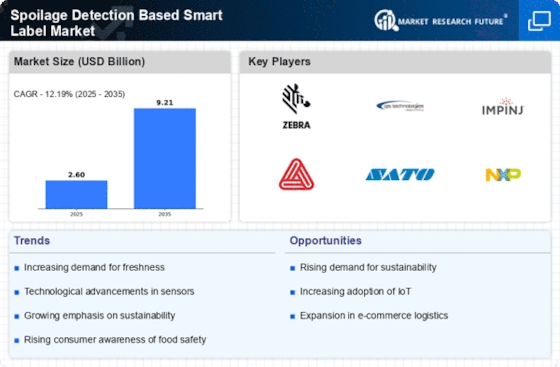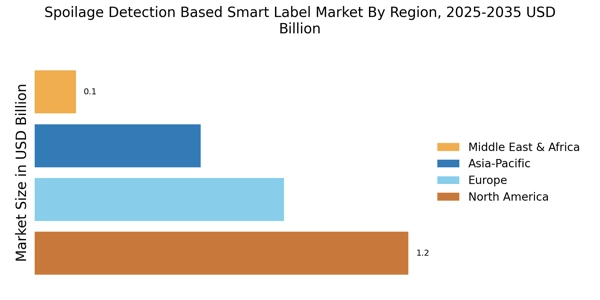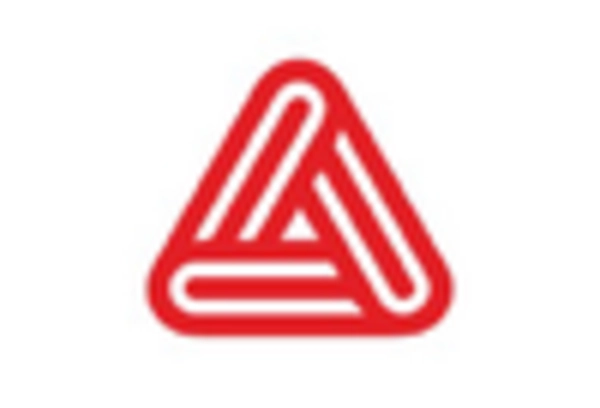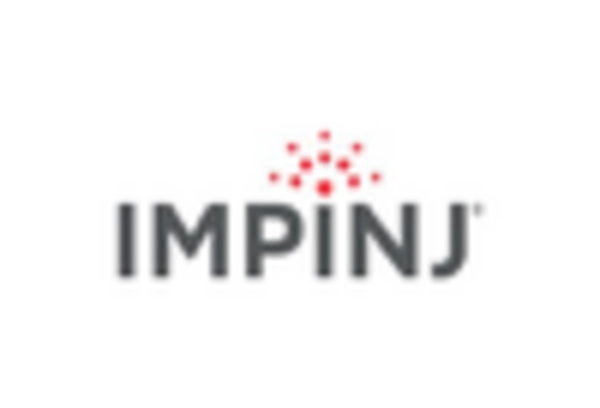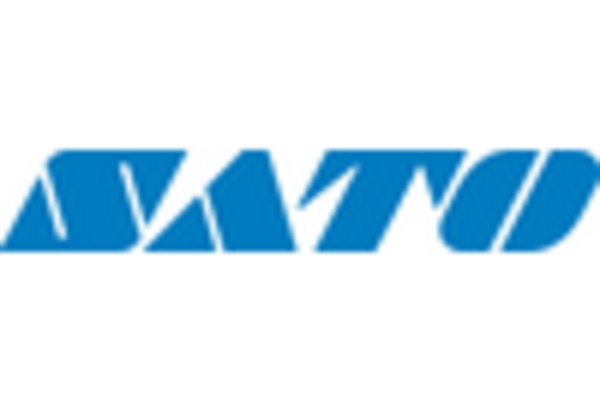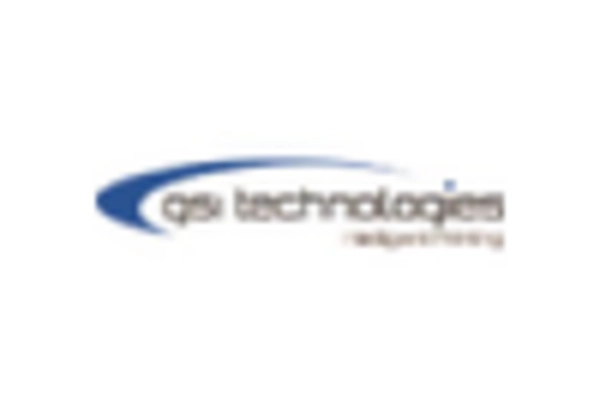Rising Consumer Awareness
Consumer awareness regarding food safety and quality is increasingly influencing the Spoilage Detection Based Smart Label Market. As individuals become more informed about the implications of food spoilage, they are likely to seek products that offer transparency and assurance. This trend is reflected in the growing preference for labels that provide real-time information about the freshness of food items. Market Research Future indicates that approximately 70% of consumers are willing to pay a premium for products that utilize smart labeling technologies. This shift in consumer behavior is expected to drive demand for spoilage detection solutions, as manufacturers strive to meet the evolving expectations of health-conscious consumers.
E-commerce Growth and Delivery Challenges
The rapid expansion of e-commerce is reshaping the landscape of the Spoilage Detection Based Smart Label Market. As online grocery shopping becomes more prevalent, the challenges associated with delivering perishable goods are intensifying. Smart labels that can monitor spoilage during transit are increasingly seen as essential tools for e-commerce retailers. The ability to provide consumers with real-time information about the freshness of their purchases can enhance customer satisfaction and reduce return rates. Market analysts project that the e-commerce food sector will grow significantly, potentially reaching USD 200 billion by 2025. This growth presents a substantial opportunity for smart label manufacturers to cater to the evolving needs of the e-commerce market.
Sustainability and Waste Reduction Efforts
The growing emphasis on sustainability and waste reduction is driving innovation within the Spoilage Detection Based Smart Label Market. As organizations strive to minimize their environmental impact, the adoption of smart labels that can accurately monitor spoilage is becoming increasingly relevant. These labels not only help in reducing food waste but also contribute to more sustainable supply chain practices. Recent studies suggest that implementing spoilage detection technologies could reduce food waste by up to 30%, aligning with global sustainability goals. Consequently, businesses are likely to invest in smart labeling solutions that support their sustainability initiatives, thereby enhancing their market position.
Technological Integration in Supply Chains
The integration of advanced technologies into supply chains appears to be a pivotal driver for the Spoilage Detection Based Smart Label Market. As businesses increasingly adopt Internet of Things (IoT) solutions, the demand for smart labels that can monitor spoilage in real-time is likely to surge. This integration facilitates enhanced tracking of perishable goods, thereby reducing waste and improving efficiency. According to recent estimates, the market for IoT in supply chains is projected to reach USD 1 trillion by 2025, indicating a substantial opportunity for smart label manufacturers. The ability to provide accurate spoilage data not only aids in inventory management but also enhances consumer trust, making it a critical component of modern supply chain strategies.
Regulatory Compliance and Food Safety Standards
The stringent regulatory landscape surrounding food safety is a significant driver for the Spoilage Detection Based Smart Label Market. Governments and regulatory bodies are increasingly mandating compliance with food safety standards, which necessitates the implementation of advanced monitoring solutions. Smart labels that can detect spoilage and provide real-time data are becoming essential tools for businesses aiming to adhere to these regulations. For instance, the Food Safety Modernization Act has prompted many food manufacturers to adopt technologies that ensure product safety throughout the supply chain. This regulatory pressure is likely to propel the adoption of spoilage detection labels, as companies seek to mitigate risks associated with non-compliance.

